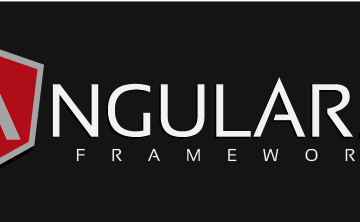What is Angular?
Angular is a platform and framework for building single-page client applications using HTML and TypeScript. Angular is written in TypeScript. It implements core and optional functionality as a set of TypeScript libraries that you import into your apps.
First introduced in 2009, the framework has gained huge traction over the years for eliminating unnecessary code and ensuring lighter & faster apps.
Angular versions under support
| Version | Status | Released | Active Ends | LTS Ends |
| ^11.0.0 | Active | Nov 11, 2020 | May 11, 2021 | May 11, 2022 |
| ^10.0.0 | LTS | Jun 24, 2020 | Dec 24, 2020 | Dec 24, 2021 |
| ^9.0.0 | LTS | Feb 06, 2020 | Aug 06, 2020 | Aug 06, 2021 |
Angular versions v4, v5, v6, v7, and v8 are no longer under support.
Why use Angular?
Supported by Google – a lot of developers consider Google support another benefit of Angular, making the platform trustworthy. At ng-conf 2017, the developers of Angular confirmed that Google will support Angular on a long-term basis.
Detailed documentation – you can find any information related to the development.
Great ecosystem of third-party components – you can get additional functionality and productivity improvements.
Component-based architecture – an app is divided into independent logical and functional components. These components can easily be replaced and decoupled as well as reused in other parts of an app. In addition, component independence makes it easy to test a web app and ensure that every component works seamlessly.
Command-line Interface (CLI) – It mechanizes the complete development workflow, build optimizer, create app configuration, and initialization as simple as possible.
Ivy Renderer – Ivy Renderer translates an app’s components and templates into JavaScript code that can be displayed by a browser. During rendering, Ivy evacuates the non-used code to make it smaller and clearer. This in turn makes web apps load more rapidly.
Angular Material – you can easily integrate UI components with this compilation of elements in Material Design that are enhanced for Angular.
Angular Elements – can simply insert custom elements to a web app developed with j Query, Ajax, React, Vue, or any other ecosystem.
Ahead-of-time compiler – Angular’s AOT compiler converts TypeScript and HTML into JavaScript during the build process. This means that code is compiled before the browser loads your web app so that it’s rendered much faster.
Ease of testing – the application is divided into parts, it means, you do not have to remember the order of testing, just follow one-file-one-module-principle.
Ease of Maintenance – Angular app's components are decoupled and replaceable.
Angular Universal – used for server-side rendering, it facilitates web crawlers to improve your web app’s rank in search engines., it decreases page load time and improves performance on mobile devices.
In the video below you will see what are the advantages and disadvantages of Angular, about its competitors and its history. Watch it and find out if this framework will work for you.



0 Comments